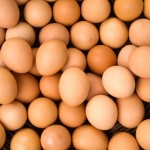What is egg quality? All women have a fixed number of eggs in their body, which are released during ovulation and which can be fertilised by a sperm in order to create a baby. Many people believe that how many eggyou have is important, however, this is one of those situations in which quality is […]
sperm

Artificial insemination
What is artificial insemination? Artificial insemination is an option used for couples that are unable to conceive. Who is artificial insemination for? Women with ovulation problems. Mild endometrio. Unexplained infertility. If there is a problem with your man’s sperm or is he is suffering from erectile dysfunction. Premature ejaculation. If you are suffering from one […]

Sperm allergies
What is a sperm allergy? Both men and women can develop a sperm allergy, that is a negative reaction to sperm in your body. Your immune system develops sperm antibodies which repel sperm, which means it is very hard for those little guys to make it to their final destination: the egg. It is not […]

Meiosis
Meiosis is a type of cellular division in which one cell with 46 chromosomes splits into two cells, each with 23 chromosomes. It is through this process that the male sperm and female ovum (egg) are formed. Meiosis allows the sperm and egg to contribute half of your baby’s genetic information to the 46 chromosome […]
Zygote
Your baby is scientifically known as a zygote for about 5-7 days after fertilisation. A zygote is best explained as the cell that results from the fusion of two gametes. In the case of your baby, the gametes are your partner’s sperm and your egg. Zygotes carry the genetic information which will determine what your […]
Conception
Conception is the more colloquial term for fertilisation, a 3 step process, which occurs during the first two weeks of pregnancy and ends with the fusion of the father’s sperm and the mother’s egg or ovum. Step 1 involves the production of gametes, the cells which carry all of the genetic information necessary for reproduction. […]
Fertilisation
Fertilisation is the more scientific term for conception, a 3 step process, which occurs during the first two weeks of pregnancy and ends with the fusion of the father’s sperm and the mother’s egg or ovum. Step 1 involves the production of gametes, the cells which carry all of the genetic information necessary for reproduction. […]
